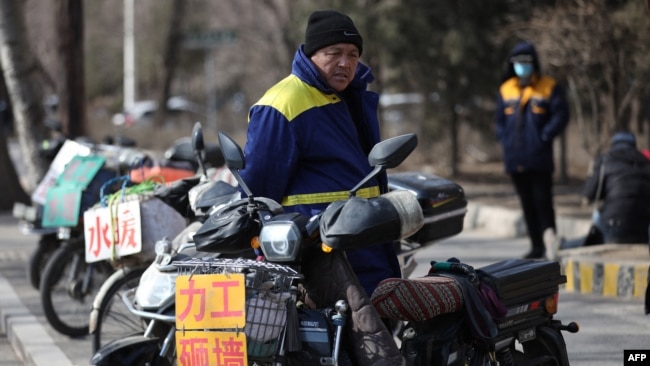As China’s Economy Slows, Labor Protests Pick Up
Written by worldOneFm on February 17, 2024
Labor protests in China have increased rapidly since August of last year, according to rights groups, especially in the lead-up to Lunar New Year, which began late last week.
Labor protests more than tripled in the fourth quarter of 2023 compared to the same period in 2022, according to data collected by New York-based international rights group Freedom House’s China Dissent Monitor, which tracks protests in China. Analysts say this unrest is linked to poor working conditions and China’s ongoing economic difficulties.
The China Dissent Monitor recorded 777 labor protests in China between September and December 2023, compared to 245 in the same period of 2022.
Independent data from the Hong Kong-based China Labour Bulletin, which promotes Chinese workers’ rights, recorded an additional 183 protests between January 1 and February 3, including 40 in Guangdong province alone.
Kevin Slaten, who leads the China Dissent Monitor, said worker protests are often linked to wage disputes and occupational safety.
“The long-term problems underlying these disputes in China are poor enforcement of labor protections and a complete lack of independent and effective labor unions,” Slaten told VOA in an emailed statement.
Slaten said most of the protests that China Dissent Monitor has analyzed are small in size, with half having less than 10 participants and 40% more having between 10 and 99 protesters.
Li Qiang, founder and executive director of New York-based China Labor Watch, which advocates for the Chinese labor movement, said that in addition to China’s economic slowdown, an “implosion” in the real estate sector and reduced manufacturing was also a factor.
“China’s high-level economic problems ultimately set the foundation of the increase in labor protests this year,” Li told VOA in an emailed response. “Due to the decrease of manufacturing orders, among other things, a lot of companies face financial challenges that trickle down to workers.”
Construction workers are particularly likely to protest, Slaten said, especially considering the major difficulties facing the Chinese real estate sector, most notably the bankruptcy of major property developer Evergrande Group.
“China’s relative economic slowdown and particularly an ongoing crisis in the property sector and its impact on construction workers is contributing to this surge in labor dissent,” Slaten wrote.
Migrant construction workers, who Li said often do not have legally binding contracts with their employees, have been hit particularly hard by the property sector’s collapse.
Late last year, China State Councilor Shen Yiqin warned of “severe” punishments for employers who intentionally delayed paying their workers and urged local governments to make sure all workers received their pay on time. Shen made her remarks at a national teleconference on wage arrears ahead of the Lunar New Year holiday.
Liu Jun, a migrant from Sichuan province who works in construction in Xinjiang, said he has been waiting nearly two months for his paycheck.
“It’s almost the end of the year and I haven’t been given any money yet,” Liu told VOA Mandarin. “This is all the hard-earned money of the construction workers, and they should be paid after the work is done.”
Ma Hui, a construction worker from Hebei province who also works in Xinjiang, said her boss did not pay workers for a three-month period last year, only providing workers with noodles, salt and light soy sauce to eat.
“During that period, I had no living expenses for several months, and my boss wouldn’t lend me any money,” Ma told VOA Mandarin. “I didn’t even have money to buy basic daily necessities such as toilet paper and toothpaste.”
Li said local governments’ budget shortfalls are preventing them from stepping in to aid migrant workers.
“In the past, the Chinese government has been investing capital annually to alleviate companies’ liquidity pressure and reduce the overall numbers of wage arrears towards the end of the year,” Li wrote. “Additionally, they would also strengthen the implementation of their monitoring apparatus to combat labor-related disputes. But this year, the situation shifted as the Chinese government [especially on the local level] faces financial pressures.”
Zhang Chao, a worker from Zhejiang province who helped build facilities in Beijing for the 2022 Winter Olympics, said he hopes construction workers’ benefits can increase commensurate with the difficult, dangerous work they do.
“Migrant workers have limited abilities and can only do the hardest and most tiring work, exchanging life and health for money,” Zhang told VOA Mandarin. “My biggest wish in our industry is not to be afraid of hardship and sweat, and I just hope that I can get the salary I deserve.”
By Evie Steele








